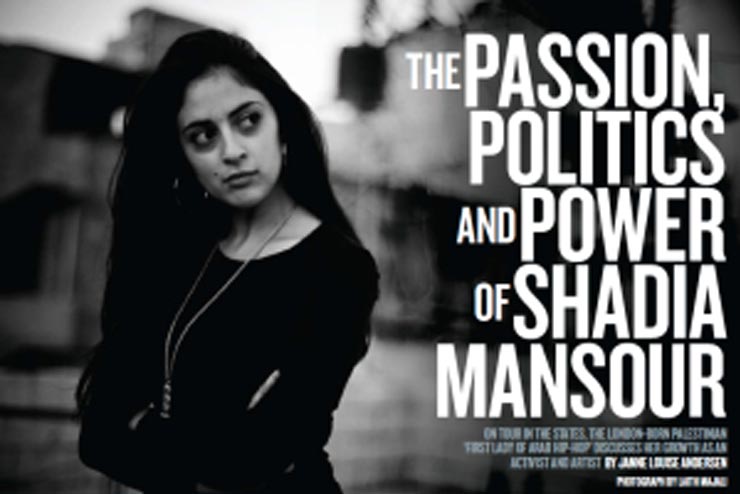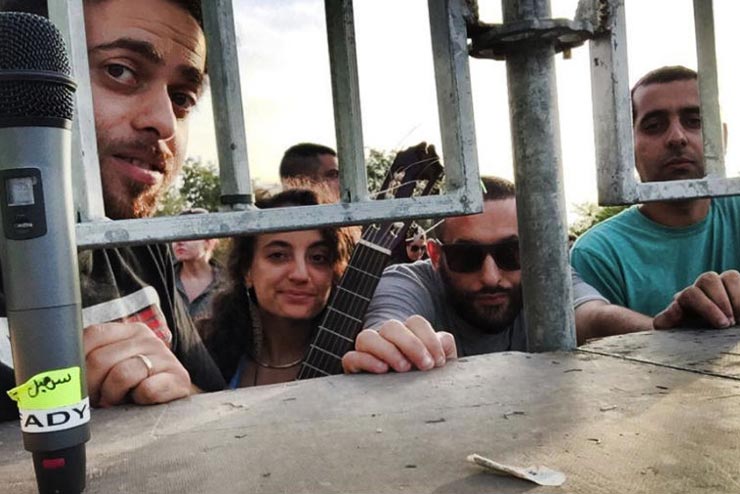Shadia Mansour a British rap singer of Palestinian origin found a special outlet to express “the pain of the Palestinian people.”
Ms Mansour was inspired by classical 20th Century Arabic singers such as Lebanese artist Fairouz and Egypt’s Mohammed Abdel Wahab. She moved towards hip-hop in her teens.
But what distinguishes her from many other British rappers is that she chooses to rap in Arabic even though English is her first language.
“Arabic is the language of poetry, a very classical language,” says Ms Mansour.
“For me it’s all about originality. I am Arabic, my name is Arabic, and I believe I should rap in Arabic.”
She performs wearing a traditional Palestinian thawb and has said that she considers herself to be part of a “musical intifada – a musical uprising“ against the occupation of Palestine, conservatism and oppression of women.
Mansour’s first single, “Al Kufiya Arabiya” (The Kufiya is Arab), featured rapper M-1 of dead prez and lyrics emphasizing the kufiya‘s.
The song was written when Mansour discovered an American made blue-white colored Arab scarf with stars on it. Mansour introduced her song on stage in New York: “You can take my falafel and hummus, but don’t fucking touch my keffiyeh”.
Mansour’s political raps have criticized Israel’s occupation of Palestine as well as Israel’s role in the Gaza Attack which began in 2008.
Mansour said, “My music sometimes sounds hostile. It’s my anger coming out and it’s resistance. It’s non-violent resistance.”
While challenging Israel’s policies, Mansour also takes a stand against gender stereotyping of women both in hip-hop culture and Palestinian society.
She has refused to perform to gender-separated audiences. Mansour’s music has been challenged by conservatives within Palestine, and Mansour has addressed that opposition to her music in her lyrics.
She initially tried to change her voice to sound more like male MCs, but over time Mansour has developed her own style as a female MC while rejecting the sexualization of women in hip-hop.
Mansour typically performs in a traditional Palestinian gown that covers most of her body, and notes that she is “kind of old fashioned.”
Shadia Mansour/Tribute to Mahmoud Darwish




